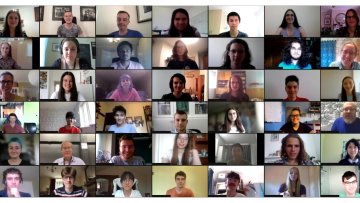Critical exponents for a three-dimensional percolation model
Abstract
We will report on recent progress regarding the near-critical behavior of certain statistical physics models in dimension 3. Our results deal with the second-order phase transition associated to two percolation problems involving the Gaussian free field in 3D. In one case, they determine a unique ``fixed point'' corresponding to the transition, which is proved to obey one of several scaling relations. Such laws are classically conjectured to hold by physicists on the grounds of a corresponding scaling ansatz.


